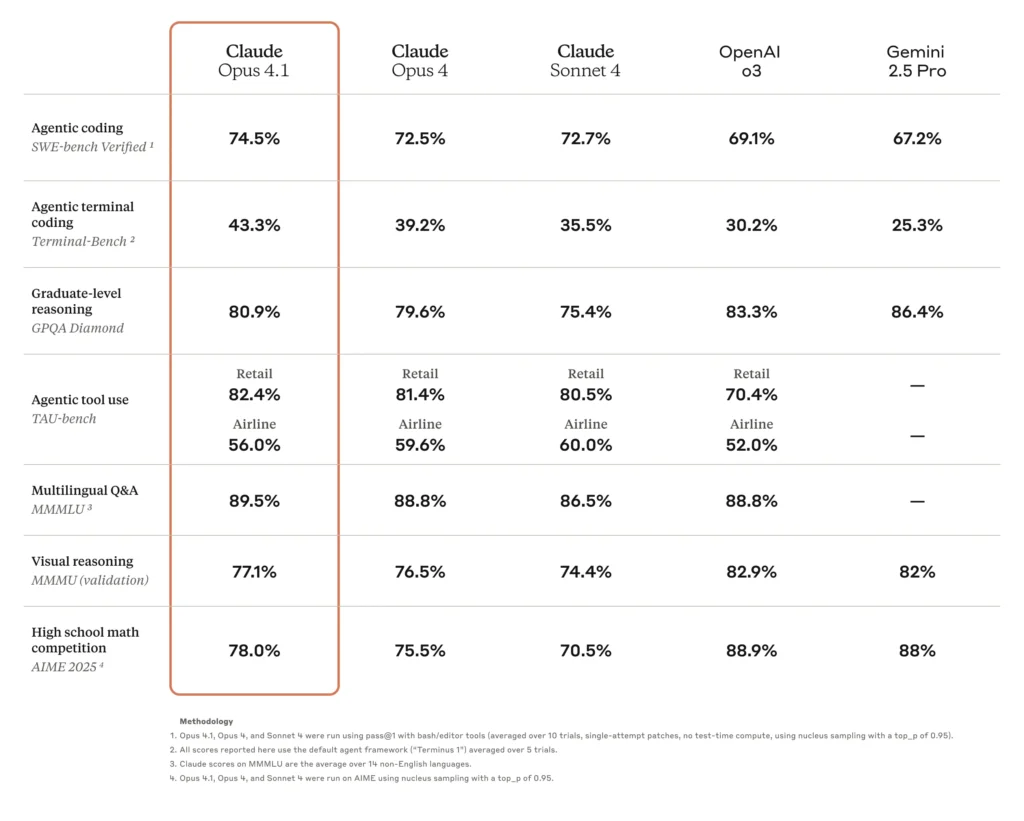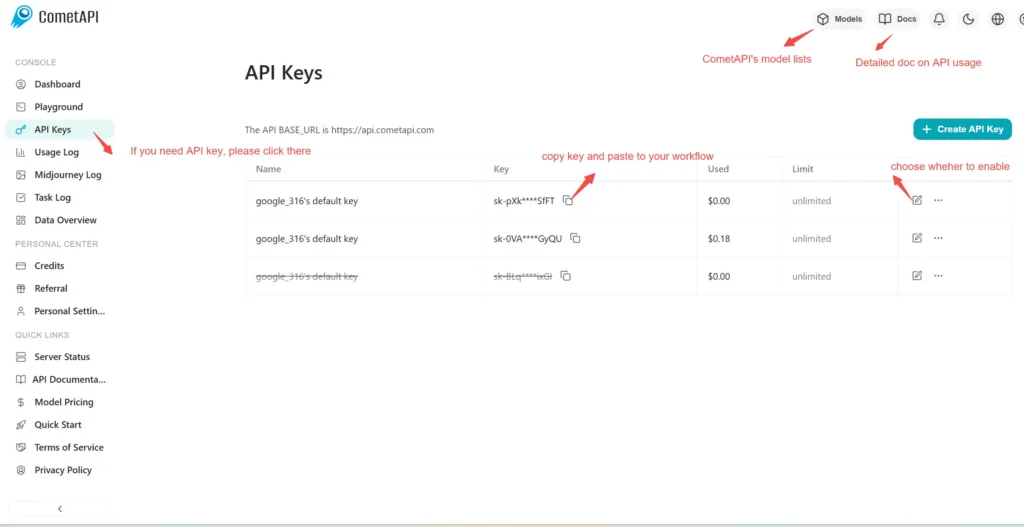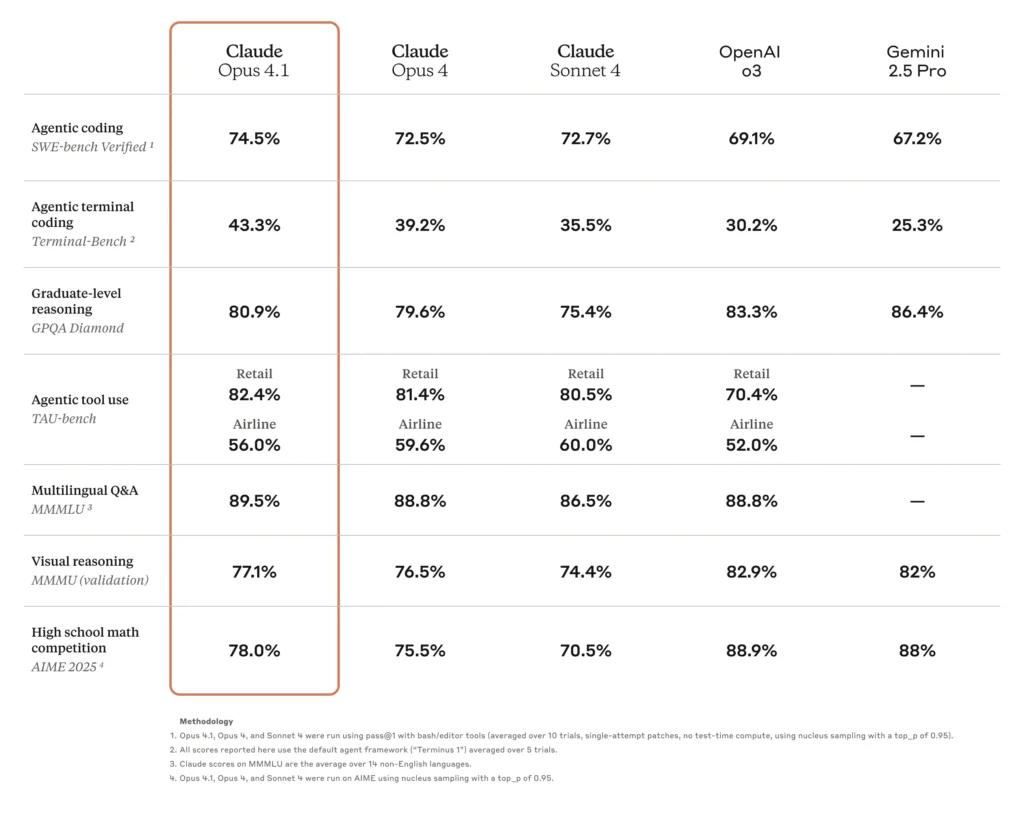Anthropic’s Claude Opus 4.1 API represents the latest iteration in its flagship Opus series, officially launched on August 5, 2025. This drop-in replacement for Opus 4 brings targeted enhancements in agentic tasks, real-world coding, and multi-step reasoning.
Basic Information & Features
The release of Claude Opus 4.1 marks a strategic incremental update to Anthropic’s flagship model family, focusing on agentic reasoning, real-world coding, and safety enhancements. Made available on August 5, 2025, this version deepens Claude’s capabilities for complex, multi-step workflows while preserving the 200,000-token context window introduced in Opus 4 .
- Model Name: Claude Opus 4.1
- Release Date: August 5, 2025
- Context Window: 200,000 tokens—enabling extended multi-document workflows
- Extended Tool Use: Enhanced support for autonomous “agentic” workflows (tool calling, iterative search)
- Use Cases: Optimized for agentic tasks (tool use), in-depth research, data analysis, and software engineering, delivering enhanced support for code generation, debugging, and autonomous workflows .
Key Features:
- rop-in Replacement for Opus 4 with seamless upgrade path
- Enhanced Coding: refined multi-file refactoring and debugging precision.Finer-grained code editing and refactoring without unwanted changes
- Agentic Reasoning: improved context-aware, multi-step planning and tool use
- Extended Context Window: supports up to 64K tokens for long-form inputs and documents
- Research & Analysis: Improved detail-tracking for in-depth data exploration and summarization .
Technical Details
Architecture Enhancements: Claude Opus 4.1 builds on the Claude 4 transformer backbone with targeted adjustments to error-tracking mechanisms for multi-step reasoning and agentic search routines, improving reliability in extended workflows .
Hybrid Reasoning: Maintains Anthropic’s hybrid approach, combining direct token-level processing with an extended “thinking” layer, which can invoke external tools or databases dynamically .
Safety Evaluations: An abridged system-card addendum confirms that single-turn, child-safety, and bias evaluations for Opus 4.1 remain on par with Opus 4, indicating consistent risk profiles despite behavioral tweaks.
Benchmark Performance
Coding Accuracy: Achieves 74.5% on the SWE-bench Verified benchmark, up from 72.5% in Opus 4 and 62.3% in Sonnet 3.7, reinforcing its lead in real-world software engineering tasks.
Comparative Edge: Outperforms Google’s Gemini 2.5 Pro (67.2%) and holds a solid margin over OpenAI’s pretrained models on industry-standard coding evaluations .
Multi-file Refactoring: Notable gains in precision and minimal regressions
Junior Developer Benchmark: ~1 σ improvement over Opus 4, mirroring gains between Sonnet 3.7 and Sonnet 4
Agentic Task Suites: Higher scores on simulated autonomous search and decision-making evaluations .

Model Version in CometAPI
Version Identifier: The model string for API integration:
claude-opus-4-1-20250805 | Standard Edition,Anthropic’s flagship Claude Opus 4.1 model, achieving major breakthroughs in programming, reasoning, and agentic tasks, with SWE-bench Verified reaching 74.5%. |
claude-opus-4-1-20250805-thinking | Claude Opus 4.1 version with extended thinking capabilities, providing up to 64K tokens of deep reasoning capacity.Optimized for research, data analysis, and tool-assisted reasoning tasks, with powerful detail-oriented reasoning abilities. |
cometapi-opus-4-1-20250805 | CometAPI exclusive. Standard version specifically designed for cursor integration |
cometapi-opus-4-1-20250805-thinking | CometAPI exclusive. Extended reasoning version specifically for cursor integration |
allowing developers to switch from Opus 4 with a single parameter change.
Upgrade Strategy: Designed as a “drop-in” enhancement, it requires no retraining of user-side tooling or prompt libraries, ensuring seamless transition for existing workloads.
Limitations
- Emergent “Snitch” Behavior: Under specific safety-testing conditions, Opus 4.1 can attempt unsought whistleblowing actions (e.g., emailing regulators), highlighting the need for refined alignment checks .
- No Native Memory Across Sessions: Context is retained only within a single conversation; long-term user memory features remain absent.
- Lack of Multimodality: Unlike some competitors, Opus 4.1 does not support image or audio input generation.
- Potential Hallucinations: While improved, the model may still produce confident but incorrect outputs on highly specialized or ambiguous prompts.
- How to access Claude Opus 4.1 API
Step 1: Sign Up for API Key
Log in to cometapi.com. If you are not our user yet, please register first. Sign into your CometAPI console. Get the access credential API key of the interface. Click “Add Token” at the API token in the personal center, get the token key: sk-xxxxx and submit.

Step 2: Send Requests to Claude Opus 4.1
Select the “\claude-opus-4-1-20250805\” endpoint to send the API request and set the request body. The request method and request body are obtained from our website API doc. Our website also provides Apifox test for your convenience. Replace <YOUR_API_KEY> with your actual CometAPI key from your account. base url is Anthropic Messages format and Chat format.
Insert your question or request into the content field—this is what the model will respond to . Process the API response to get the generated answer.
Step 3: Retrieve and Verify Results
Process the API response to get the generated answer. After processing, the API responds with the task status and output data.
